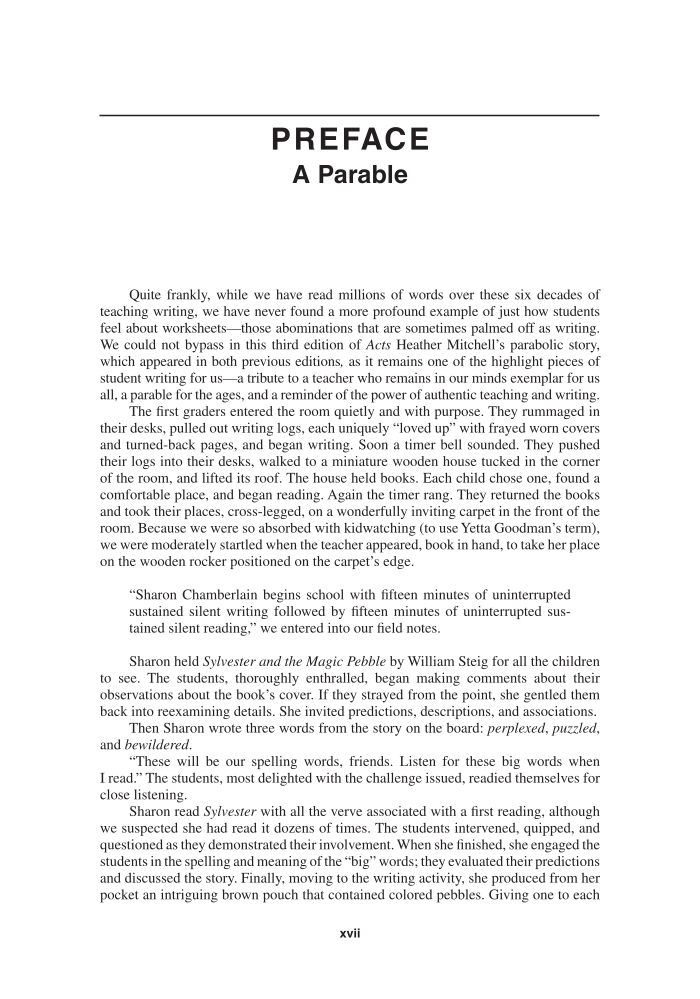xvii PREFACE A Parable Quite frankly, while we have read millions of words over these six decades of teaching writing, we have never found a more profound example of just how students feel about worksheets—those abominations that are sometimes palmed off as writing. We could not bypass in this third edition of Acts Heather Mitchell’s parabolic story, which appeared in both previous editions, as it remains one of the highlight pieces of student writing for us—a tribute to a teacher who remains in our minds exemplar for us all, a parable for the ages, and a reminder of the power of authentic teaching and writing. The first graders entered the room quietly and with purpose. They rummaged in their desks, pulled out writing logs, each uniquely “loved up” with frayed worn covers and turned-back pages, and began writing. Soon a timer bell sounded. They pushed their logs into their desks, walked to a miniature wooden house tucked in the corner of the room, and lifted its roof. The house held books. Each child chose one, found a comfortable place, and began reading. Again the timer rang. They returned the books and took their places, cross-legged, on a wonderfully inviting carpet in the front of the room. Because we were so absorbed with kidwatching (to use Yetta Goodman’s term), we were moderately startled when the teacher appeared, book in hand, to take her place on the wooden rocker positioned on the carpet’s edge. “Sharon Chamberlain begins school with fifteen minutes of uninterrupted sustained silent writing followed by fifteen minutes of uninterrupted sus- tained silent reading,” we entered into our field notes. Sharon held Sylvester and the Magic Pebble by William Steig for all the children to see. The students, thoroughly enthralled, began making comments about their observations about the book’s cover. If they strayed from the point, she gentled them back into reexamining details. She invited predictions, descriptions, and associations. Then Sharon wrote three words from the story on the board: perplexed, puzzled, and bewildered. “These will be our spelling words, friends. Listen for these big words when I read.” The students, most delighted with the challenge issued, readied themselves for close listening. Sharon read Sylvester with all the verve associated with a first reading, although we suspected she had read it dozens of times. The students intervened, quipped, and questioned as they demonstrated their involvement. When she finished, she engaged the students in the spelling and meaning of the “big” words they evaluated their predictions and discussed the story. Finally, moving to the writing activity, she produced from her pocket an intriguing brown pouch that contained colored pebbles. Giving one to each
Document Details My Account Print multiple pages
Print
You have printed 0 times in the last 24 hours.
Your print count will reset on at .
You may print 0 more time(s) before then.
You may print a maximum of 0 pages at a time.












































































































































































































































































